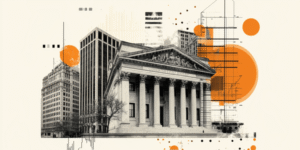Some job seekers might be better off chatting with a bot.
A new study found that applicants interviewed by an AI voice agent were 12% more likely to get a job offer than those screened by human recruiters. They were also more likely to actually start work and stick around after 30 days.
The professional recruiters had bet on themselves in this hiring experiment. The AI proved them wrong.
The study also found that when given the choice, 78% of applicants picked the AI interviewer over a human recruiter.
Brian Jabarian, an economist at the University of Chicago Booth School of Business, and Luca Henkel, a behavioral economist at Erasmus University Rotterdam, partnered with global recruitment firm PSG Global Solutions to pit AI against human recruiters in a large-scale hiring experiment.
The trial covered more than 70,000 applicants vying for entry-level customer service roles across 48 job postings in the Philippines. The jobs were with 23 Fortune 500 companies and 20 European firms.
Applicants were randomly assigned to one of three interview conditions: a human recruiter, an AI recruiter, or a choice between the two.
In all cases, human recruiters ultimately made the hiring decision after reviewing transcripts and a standardized test of language and analytical skills. That design allowed the researchers to isolate one variable: the interview conversation.
Both humans and the AI followed the same interview guide. It started with eligibility questions, moved into career goals and work experience, and ended with job details. But the outcomes diverged.
Why AI did better
Applicants interviewed by AI recruiters received job offers in 9.73% of cases, compared to 8.7% under human recruiters.
The study also found that they were 18% more likely to start work and 17% more likely to still be employed after 30 days.
Using natural language processing, the researchers found that AI interviews were more structured, covered more topics, and encouraged richer answers. AI-led interviews drew out the kinds of cues that human recruiters usually reward — like conversational depth — while minimizing weaker signals, such as filler responses or irrelevant questions.
Recruiters who reviewed the transcripts scored AI-interviewed candidates higher than those they interviewed themselves.
“AI-led interviews elicited more hiring-relevant information,” Jabarian and Henkel wrote, adding that applicants also reported similar levels of satisfaction with AI recruiters compared to humans.
But the system wasn’t perfect. About 5% of applicants ended their interviews once they realized they were speaking to AI, and in 7% of cases, the agent encountered technical issues. Applicants also rated the interaction as less “natural” than talking to a human.
Jabarian and Henkel did not respond to a request for comment from Business Insider.
How AI is changing hiring
AI has been increasingly used in the job-seeking and hiring process. Candidates are leaning on it to help tailor their résumés, while employers use it to sift through the thousands of applications they receive.
Emily DeJeu, an assistant professor at Carnegie Mellon University’s Tepper School of Business who specializes in AI communication and etiquette, told Business Insider in May that AI-powered video interviews are likely to become more common as companies seek to streamline and automate early hiring stages.
Any time technology promises to save time and money and make everything faster, “we by default pursue it — there’s a kind of inevitability to it,” she said.
Tech investors said AI may upend recruiting.
Victor Lazarte, a former general partner at Benchmark, said on an episode of the “Twenty Minute VC” podcast published in April that recruiters should be especially nervous about AI replacing their jobs.
He said AI models would soon be better than people at interviewing candidates — and far more efficient than companies’ messy, manual hiring processes.
But not everyone is sold. In a Business Insider report published Monday, hiring managers said they are flooded with applications, many of them AI-optimized to seem like a perfect fit, while hundreds of frustrated job seekers reported thousands of unsuccessful applications.
AI has made hiring a “cat and mouse game” between candidates and employers, as both use technology to try to suss out the other, said Hatim Rahman, an associate professor of management and organizations at Northwestern University.
As a result, there’s a push toward finding “more human signals in both the process of searching and applying,” he added.
Read the full article here
















